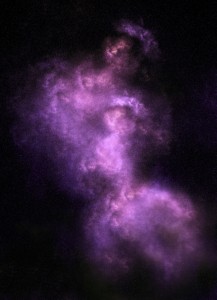The Time of Renewal and the Renewal of Time (Part 3)
By Asher Crispe: September 24, 2012: Category Decoding the Tradition, Inspirations
 Are we not sold on the idea of a sold self? A single coherent being who has a core that resists the erosions of the passing of time? The French philosopher Gilles Deleuze has a tenacity for asking these questions. They were for him a life long intellectual pursuit. Out of this inquiry he forged his notion of ‘difference in itself’–a highly compact way of saying that we do not have a foundational identify upon which all of our changes are measured. There is no marking of a fixed and immutable ‘I’ that acts of a measuring rod against which all personal transformation may be gauged. On the contrary, our real or deepest self is a flow, an endless state of becoming. My ‘I’ carries difference within it. ‘I’ am other to myself.
Are we not sold on the idea of a sold self? A single coherent being who has a core that resists the erosions of the passing of time? The French philosopher Gilles Deleuze has a tenacity for asking these questions. They were for him a life long intellectual pursuit. Out of this inquiry he forged his notion of ‘difference in itself’–a highly compact way of saying that we do not have a foundational identify upon which all of our changes are measured. There is no marking of a fixed and immutable ‘I’ that acts of a measuring rod against which all personal transformation may be gauged. On the contrary, our real or deepest self is a flow, an endless state of becoming. My ‘I’ carries difference within it. ‘I’ am other to myself.
The liquidity of self is accessed within the kabbalistic tradition as well. In Hebrew, the general term of the self also serves as the first person singular pronoun, the ‘I’ or ani. As a pro-noun the ‘I’ is already in place of a name, a real someone. It is a re/presentative state, an exchange. So if the word “I” names me without directly naming me, if it imparts knowledge of me on my behalf, then how much of myself can be poured into it? Can I be totally taken in by my ‘I’? Is this ‘I’ a self image and am I equal to that image? When I say ‘I,’ do I mean some definitive person?
In Kabbalah, the ani or ‘I’ is like an outer garment which allows a person to appear in public. It is one’s malchut or kingdom. Kingdom in this case, means a person’s sovereign self. As a person’s signature impression upon the world, it is a sign of self-determination or self-mastery. Likewise, malchut or the sphere of influence, can also be symbolized by the earth. Thus, a person’s inner world congeals into a definite shape or territory. The topography of self is cast by the properties of self (middot) that compose this earth.
Having said this, we should also point out that the same three letters that spell the word ‘I’ or ani (alef-nun-yud) can also be rearranged to spell the word ayin (alef-yud-nun) which means ‘nothingness’ in the sense of no-thing-ness. ‘Not a thing’ carries the connotation of not being a definite thing. There are no definitive qualities, properties or attributes. The self or ‘I’ contains within it the raw possibility of its own undoing, a disenfranchisement or dispossession of its concreteness. Even as I am temporally defined, I remain on another level forever undefined at all times. In fact, there exists a deep sense that at my core there is nothing (no-thing) defined at all. The renewal of time and time of renewal would therefore permit the undefined self to interact with the pre-defined self to give birth to the re-defined self.
What this suggests is that each instant of my life is a unique slice of life and a unique slice of myself. All of these selves are singularities. They can be compared to each other but not to one common ‘foundational’ version of which there are many imperfect copies. If that were the case, then this static self would imply that the world persists throughout time. And even though we are not addressing the larger world, but only our inner world, the issue at hand remains the same. A primordial world or a primordial self would be an affront to the doctrine of continuous recreation. Just as the kabbalists hyper-focus on the implication of the world pulsating in and out of existence ex nihilo, so too the self undergoes the same process of recreation. Each moment of history is non-exchangeable and cannot be seen as the mere affect and continuation of what came before. My ‘I’ too is freed from a causally determined trains of pre-determined selfhood transporting it along a pre-existing track.
According to the Chassidic masters, the true sovereign self is not the one that governs and rules over existing domains and properties, but one that can acquire or relinquish domains or properties at will. The real ‘I’ is that ‘I’ am nothing (no-thing) but am free to re/determine my ‘I’ at every occasion from out of no-thing. ‘I’ need not be burdened with pre-conditions. Redemption is always in the present moment. As the sages say in the Midrash, ‘the salvations of God are in the blink of the eye.’ The eye blink or moment is defined at the threshold of temporal renewal. Creation is recreated or refreshed each and every eye wink. So it is not that God only requires a moment out of the total continuous time of the world to transform that world but rather, that each an every moment (as the minimal interval of time renewal which is the renewal of time) is all it takes for the Creator to start again from scratch, to built it up anew from out of nothing. Even the basic building blocks and materials are new.
Redemption does not arrive in the express mail in a moment. It is the moment. Salvation does not come in time; it is time. More precisely, it is the temporal interruption of time, the re-birth of time. So just as a newborn has no past to lean on or to be leaned on from, no definition or personal history, our lives, in the spark of the pure present, are ignited. The real ‘heat of the moment’ or ‘living for the moment’ needs to be converted into the ‘living from the moment’ which acts as an alchemical fire melting down the old self and tired world and allowing for the emergence of something radically new.
Embracing the no-thing-ness inside me is the mark of the highest or most exhausted sense of self. Avraham (Abraham) acknowledged and achieved this when he said (Genesis 18:27) “…I am but dust and ashes (anochi afar v’aifer).” In this verse, the pronoun for ‘I’ is not ani [אני] but anochi [אנכי]. The only letter that is different is the addition of the letter kaf in anochi. In Kabbalah, we are taught that kaf stands for keter (kaf is the first letter of the word) which means ‘crown.’ The crown symbolized the superconscious root of the soul. There the self is undefined, remaining in a state of no-thing-ness. The uplifted or transcendental ‘I’ that anochi denotes is one which allows the definite ‘I’ or ani to maintain a conscious awareness of the superconscious crown within it. We might express this as: part of my ‘I’ is other that my ‘I’ or ‘I’ define myself as ‘other’ (or at least partially other). ‘I’ am different. ‘I’ am difference in itself (Deleuze).
 What of the two predicates of the transcendental ‘I’ that Avraham uses? Dust is particulate matter. We find in Ecclesiastes 3:20 that “all originate from dust and all return to dust.” Scientifically speaking, this is now known to be literally true as all of the heavy elements or solid matter are thought to have been baked in a stellar oven and ejected as star dust. Our earth, our bodies, are in the plain sense star dust. And should a star (hopefully not ours) go supernova, then all would return to dust. My psychological continuation of self, like my physical constitution, comes from particulate matter. So too, with ashes. Ashes are like the psychic residue that remains once I deconstruct my semblance of a solid self. My ‘I’ becomes dematerialized and ephemeralized. We cannot find the ghost in the machine despite slicing and dicing the brain every which way. I somehow arise out of no-thing and I do it again and again at each moment.
What of the two predicates of the transcendental ‘I’ that Avraham uses? Dust is particulate matter. We find in Ecclesiastes 3:20 that “all originate from dust and all return to dust.” Scientifically speaking, this is now known to be literally true as all of the heavy elements or solid matter are thought to have been baked in a stellar oven and ejected as star dust. Our earth, our bodies, are in the plain sense star dust. And should a star (hopefully not ours) go supernova, then all would return to dust. My psychological continuation of self, like my physical constitution, comes from particulate matter. So too, with ashes. Ashes are like the psychic residue that remains once I deconstruct my semblance of a solid self. My ‘I’ becomes dematerialized and ephemeralized. We cannot find the ghost in the machine despite slicing and dicing the brain every which way. I somehow arise out of no-thing and I do it again and again at each moment.
Thus, time has come today and I am freed from my old self as the novel moment rescues me.




















;)
;)
;)
;)
;)
;)
;)
;)
;)
;)
